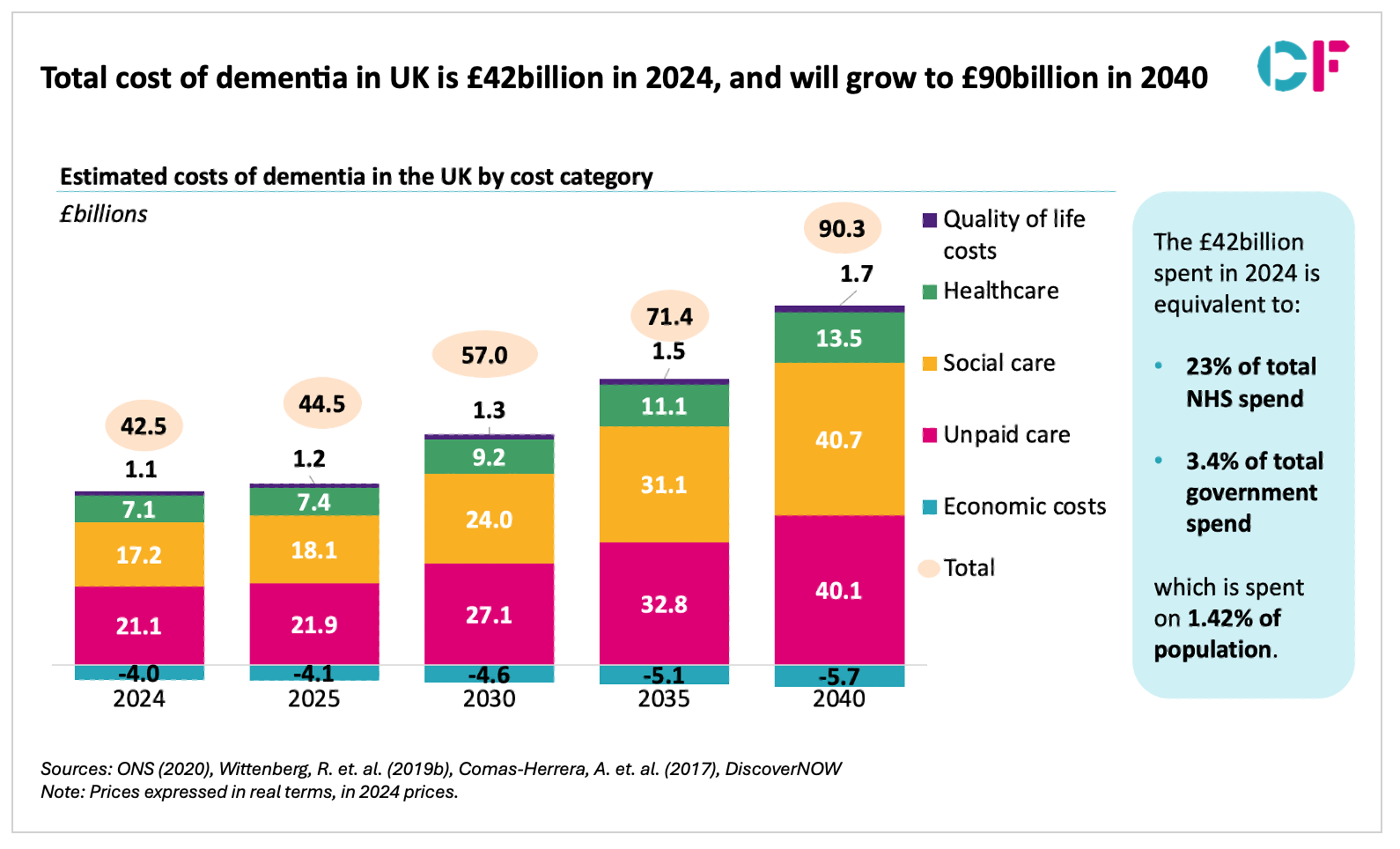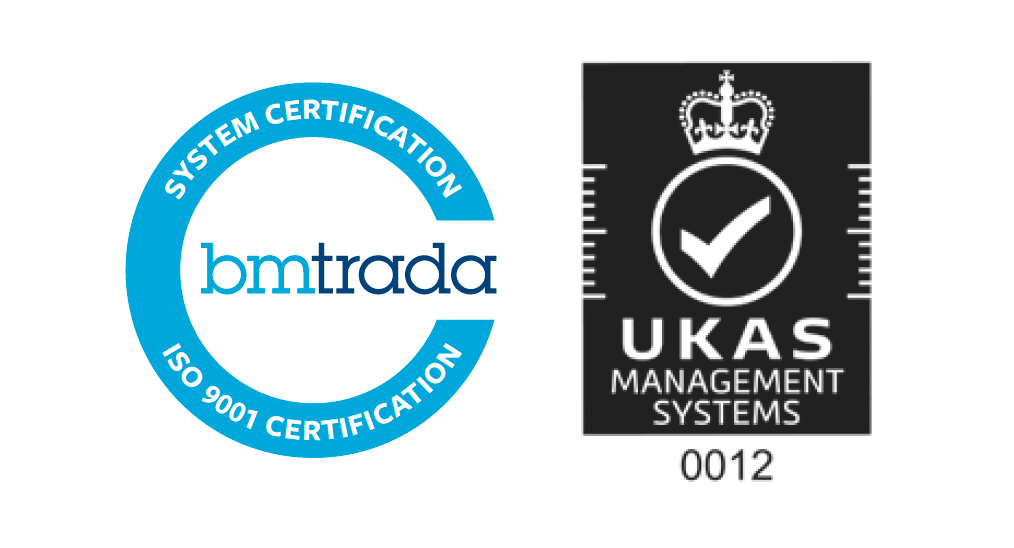The economic and healthcare burden of dementia in the UK
CF has developed novel contributions to the body of evidence that demonstrates the social and economic impact of dementia in the UK. Along with updating current estimates of the total cost and prevalence of dementia in the UK, we leveraged a linked, record-level healthcare dataset through Discover-NOW’s London Secure Data Environment (SDE)*, to develop a detailed understanding of the healthcare resource use of people with dementia. We estimate that the amount spent on diagnosis and treatment of people with dementia is only 1.4% of the total healthcare spend on dementia patients – this demonstrates the urgent need for improved policy and strategy around caring for people with dementia.
What was the challenge?
The projected rise in dementia prevalence poses a significant healthcare, social care and economic challenge, and highlights the urgent need to prioritise it as a health and care concern. Carnall Farrar (CF) was commissioned to develop a body of evidence that can illustrate the economic impact of dementia in the UK. CF identified an opportunity to use the linked record-level patient data provided by secure data environments (SDEs) to develop a new, more detailed understanding of the healthcare resource use of people with dementia.

What did we do?
- Undertook a unique data-led, real-world evidence approach, leveraging linked record-level patient data across primary and secondary care, mental health, community and prescribing used to identify real per person healthcare costs.
- This is one of the largest UK studies of healthcare resource utilisation by patients with dementia, using a study cohort of 26,097 dementia patients across North West London. This data identified people with mild, moderate and severe dementia using MMSE results recorded for 2,757 patients.
- Considered the costs associated with dementia beyond just health and social care including quality of life (additional heating costs, legal costs, transport costs, police call-outs and scams) and loss of economic consumptions. The costs were separated by payer, to provide an understanding of costs burdens on individuals and their families.
- This study included an estimation of the healthcare costs of undiagnosed patients compared to diagnosed patients, by analysing two years’ worth of healthcare costs pre-diagnosis.
- The data leverages key national datasets for population forecasts and trends in real-term prices over time to project costs up to 2040, and health and social care statistics extrapolate the activity and cost projections to other regions of England, and Scotland, Northern Ireland and Wales.
Client Testimonial
“Around one million people are living with dementia and it’s the UK’s biggest killer. We commissioned one of the largest UK studies on the economic impact of dementia with CF. Their research has been instrumental in setting out an urgent case for change to prioritise dementia in health policy. By setting out the scale of challenge and the consequences of inaction, it has the potential to help transform the lives of people living with dementia by influencing key policy changes. The report has been well received by the sector, starting important conversations.”
Jennifer Keen
Head of Policy for Alzheimer’s Society
References:
*Discover-NOW London SDE dataset. (Accessed 2024). https://discover-now.co.uk




